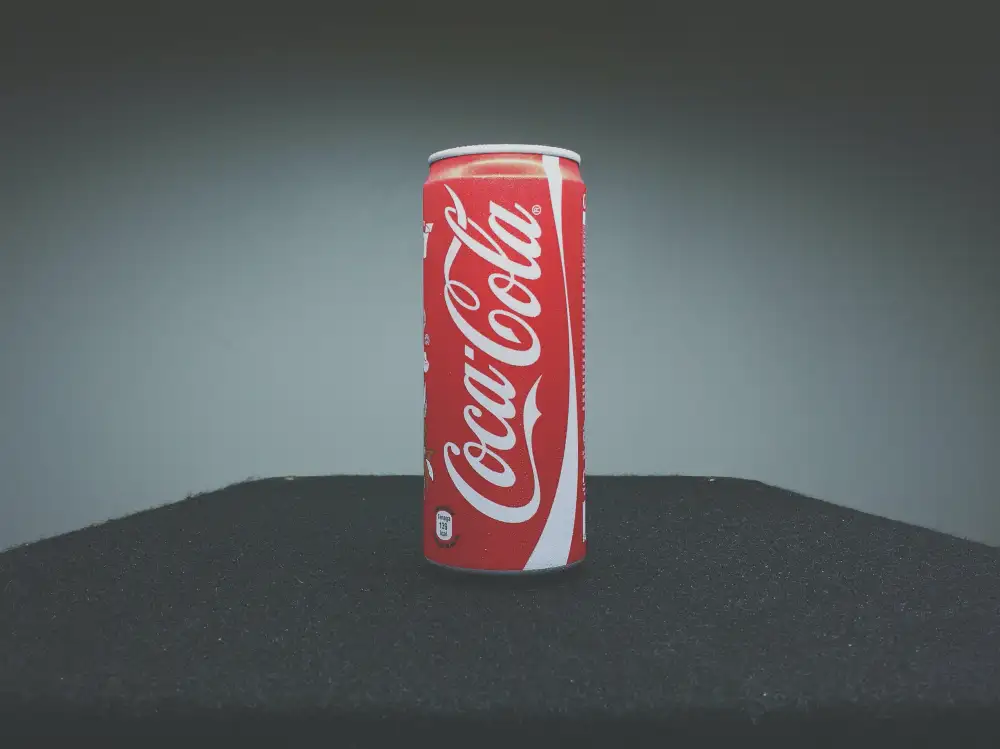Low-Calorie Showdown: Diet Coke vs. Coke Zero - Which Refreshing Beverage Wins in Taste and Nutrition?

When it comes to choosing a refreshing beverage, many people are opting for low-calorie options to maintain a healthy lifestyle. Two popular choices in this category are Diet Coke and Coke Zero. These carbonated drinks offer the same great taste as their regular counterparts but with fewer calories. In this article, we will compare Diet Coke and Coke Zero in terms of their ingredients, taste, nutritional value, and health considerations. By the end, you'll have a clear winner in the low-calorie showdown: Diet Coke or Coke Zero.
Overview of Diet Coke
Diet Coke, introduced in 1982, quickly became a popular choice for those looking to cut back on calories without sacrificing the refreshing taste of their favorite soda. This zero-calorie beverage is sweetened with aspartame, an artificial sweetener that provides the same sweetness as sugar without the added calories. Diet Coke also contains caffeine, making it a go-to choice for those needing an energy boost. With its iconic silver can and crisp, bubbly taste, Diet Coke has become a staple in many people's diets and continues to be a top-selling diet soda worldwide.
Overview of Coke Zero
Coke Zero, introduced in 2005, is a sugar-free and calorie-free alternative to regular Coca-Cola. It was created to cater to consumers who wanted the taste of classic Coke without the guilt of consuming extra calories. Like Diet Coke, Coke Zero also contains no sugar or carbohydrates. However, what sets it apart is its unique blend of flavors that closely resembles the original Coca-Cola taste. With its sleek black packaging and bold branding, Coke Zero has become a popular choice among those seeking a low-calorie beverage option that doesn't compromise on flavor.
Comparison of Ingredients
When it comes to the ingredients, both Diet Coke and Coke Zero have one thing in common - they are sugar-free. However, the way they achieve this differs slightly. Diet Coke contains artificial sweeteners like aspartame and acesulfame potassium, while Coke Zero uses a blend of aspartame and acesulfame potassium along with the natural sweetener, stevia.
In addition to the sweeteners, both beverages contain carbonated water and natural flavors. However, Diet Coke also includes caffeine, phosphoric acid, and caramel color. On the other hand, Coke Zero has added sodium citrate and potassium benzoate.
Overall, while both drinks share similar sugar-free formulas, their ingredient lists do vary slightly. It ultimately comes down to personal preference when deciding which combination of ingredients you prefer in your refreshing beverage.
Comparison of Taste
When it comes to taste, Diet Coke and Coke Zero offer slightly different flavor profiles. Diet Coke has a crisp and refreshing taste with a distinct cola flavor. It is slightly sweeter than regular Coca-Cola but still provides that classic soda taste.
On the other hand, Coke Zero aims to closely mimic the taste of regular Coca-Cola. It has a bolder and more robust flavor compared to Diet Coke, with a stronger cola taste. Some people find that it is closer in taste to the original Coca-Cola.
Ultimately, the choice between Diet Coke and Coke Zero will depend on personal preference. If you prefer a sweeter and lighter taste, Diet Coke might be your go-to option. However, if you crave a stronger and more authentic cola flavor, then Coke Zero might be the winner for you.
Comparison of Nutritional Value
When it comes to comparing the nutritional value of Diet Coke and Coke Zero, there are some key differences to consider. Both beverages are marketed as low-calorie options, but their nutritional profiles vary slightly.
Diet Coke contains zero calories, zero grams of fat, zero grams of carbohydrates, and zero grams of sugar. It is sweetened with artificial sweeteners like aspartame and acesulfame potassium. However, it does contain sodium.
On the other hand, Coke Zero also has zero calories and zero grams of fat. However, it contains a small amount of carbohydrates (less than 1 gram) and sugar (less than 1 gram). Like Diet Coke, it is sweetened with artificial sweeteners but also includes the addition of acesulfame potassium.
While both beverages are low in calories and sugar, Diet Coke edges out slightly in terms of being completely free from carbohydrates and sugar. However, the difference is minimal.
It's important to note that both Diet Coke and Coke Zero are not considered nutritious beverages. They provide no significant vitamins or minerals. These drinks should be enjoyed in moderation as part of a balanced diet.
Ultimately, when comparing the nutritional value between Diet Coke and Coke Zero, there isn't a significant difference. It comes down to personal preference in terms of taste and individual dietary needs.
Health Considerations
When it comes to choosing a low-calorie beverage, health considerations are of utmost importance. Both Diet Coke and Coke Zero contain zero calories, making them attractive options for those watching their weight. However, it's important to note that these drinks are not necessarily healthy choices.
While they may be free from calories, Diet Coke and Coke Zero still contain artificial sweeteners such as aspartame and acesulfame potassium. These sweeteners have been the subject of controversy and some studies have linked them to potential negative health effects.
Additionally, the acidity of carbonated beverages like Diet Coke and Coke Zero can erode tooth enamel over time. It is recommended to consume these drinks in moderation and practice good oral hygiene.
Furthermore, research suggests that consuming artificially sweetened beverages may not be as effective for weight management as initially believed. Some studies have found that these drinks can actually increase cravings for sugary foods and lead to overeating.
Ultimately, while Diet Coke and Coke Zero may offer a low-calorie alternative to regular soda, it's important to consider the potential health implications associated with their consumption. It is always best to prioritize whole, natural foods and opt for water or other healthier beverage choices whenever possible.
In conclusion, both Diet Coke and Coke Zero offer a refreshing and low-calorie alternative to regular soda. While they have similar ingredients and taste profiles, there are slight differences in their formulations. Diet Coke contains artificial sweeteners like aspartame, while Coke Zero uses a combination of aspartame and acesulfame potassium. In terms of nutritional value, both beverages are calorie-free and sugar-free. However, it's important to note that excessive consumption of artificial sweeteners may have potential health risks. Ultimately, the choice between Diet Coke and Coke Zero comes down to personal preference. Whether you prefer the classic taste of Diet Coke or the slightly bolder flavor of Coke Zero, both options can be enjoyed as part of a balanced diet when consumed in moderation.
Published: 05. 02. 2024
Category: Recipes



